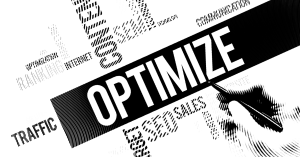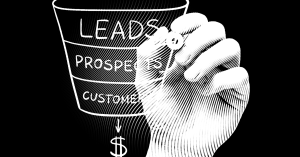
Optimizing buyer enablement
Optimizing buyer enablement You may be wondering how to entice customers to buy your product. There are a few key things you can do to
As the world of business evolves, so too does the way that companies sell to one another. In recent years, we’ve seen a shift away from traditional face-to-face selling in favor of more modern methods like e-commerce and digital marketing.

Mads Winther

Now, it seems that the next evolution in B2B sales is happening: the rise of the hybrid model.
In a hybrid model, companies use a mix of digital and traditional methods to reach and engage their customers. This might include things like using social media to build relationships and generate leads, and then following up with more traditional methods like phone calls or in-person meetings.
There are a few reasons why this model is gaining popularity. First, it allows companies to reach a wider audience with their message. Second, it helps to build trust and relationships with potential customers. And third, it’s more efficient than relying on just one method of selling.
The future of B2B sales is hybrid. By using a mix of digital and traditional methods, businesses can reach a wider audience, build trust and relationships, and be more efficient. As more businesses adopt this model, we can expect to see even more changes in the way that B2B sales are conducted.
Outperformers are 23% more likely to have a formal process for managing their hybrid sales efforts.
They’re also more likely to use data and analytics to inform their decisions (63% vs. 48%), invest in training and development for their sales teams (51% vs. 37%), and continuously test and optimize their efforts (47% vs. 31%).
If you want to be successful with hybrid sales, it’s important to have a strong digital foundation in place. This means having the right tools and technologies in place to support your sales efforts. It also means using data to drive your decisions and investing in training and development for your sales team. Finally, it’s important to continuously test and optimize your hybrid sales efforts to ensure that you’re getting the best results.
The future of B2B sales is hybrid. This model is still in its early stages, but it’s already starting to change the way that companies do business. As more businesses adopt this model, we can expect to see even more changes in the way that B2B sales are conducted. In the meantime, there are a few things that companies can do to supercharge their hybrid sales efforts: create a strong digital foundation, use data to drive decisions, invest in training and development, and continuously test and optimize.
The hybrid model of selling is quickly gaining popularity as a more efficient way of conducting B2B sales. This article outlines what the future of B2B sales may look like and how your company can adapt.
The hybrid model is still in its early stages, but it's already starting to change the way that companies do business.
Customers are no longer willing to tolerate a below-average customer experience. Seventy-two percent of customers say they have stopped doing business with a company because of a poor customer experience.
In order to meet the demands of B2B customers, companies must shift their focus from product features to customer experience. This means providing a seamless and personalized experience across all channels, from the initial contact to post-purchase support.
The hybrid model of selling is quickly gaining popularity as a more efficient way of conducting B2B sales. This article outlines what the future of B2B sales may look like and how your company can adapt.
In the past, the primary focus of B2B sales was on product features. However, this is no longer enough to meet the demands of today’s customers. In order to provide a better customer experience, companies must shift their focus to the customer journey.
The hybrid model of selling is a great way to provide a seamless and personalized customer experience. By using a mix of digital and traditional methods, businesses can reach a wider audience, build trust and relationships, and close more deals.
There are many benefits of the hybrid model, including:
Reach a wider audience: The hybrid model allows businesses to reach a wider audience by using both digital and traditional methods.
Build trust and relationships: The hybrid model helps businesses build trust and relationships with their customers by using a mix of digital and traditional methods.
Close more deals: The hybrid model helps businesses close more deals by using a mix of digital and traditional methods.
Provide a better customer experience: The hybrid model helps businesses provide a better customer experience by using a mix of digital and traditional methods.
Create a strong digital foundation: In order to succeed with the hybrid model, it’s important to have a strong digital foundation in place. This means having the right tools and technologies in place to support your sales efforts.
Use data to drive decisions: Data is critical in the hybrid model. By using data to understand your customers and their needs, you can make better decisions about how to reach them.
Invest in training and development: The hybrid model requires a different skill set than traditional selling. As such, it’s important to invest in training and development for your sales team.
Continuous test and optimize: The key to success with the hybrid model is to continuously test and optimize your efforts. This will help you identify what’s working and what’s not, and make necessary adjustments.
The hybrid model of selling is quickly becoming the new norm for B2B sales. In order to succeed in this new environment, companies must focus on the customer experience and use a mix of digital and traditional methods. By doing so, they will be able to reach a wider audience, build trust and relationships, and close more deals.
A Sales Playbook is the go-to tool for you and your sales team when you want to built and implement a repeatable, scalable, and profitable sales motion

Optimizing buyer enablement You may be wondering how to entice customers to buy your product. There are a few key things you can do to

Developing a sales pipeline Sales pipelines are often thought of as being exclusively for sales teams, but the truth is that they can be just

The future of B2B sales is hybrid As the world of business evolves, so too does the way that companies sell to one another. In

The Playbook House ApS – Solbakken 38 – 9210 Aalborg SO – Denmark – CVR DK43114611
Copyright © 2022 The Playbook House ApS. All rights reserved